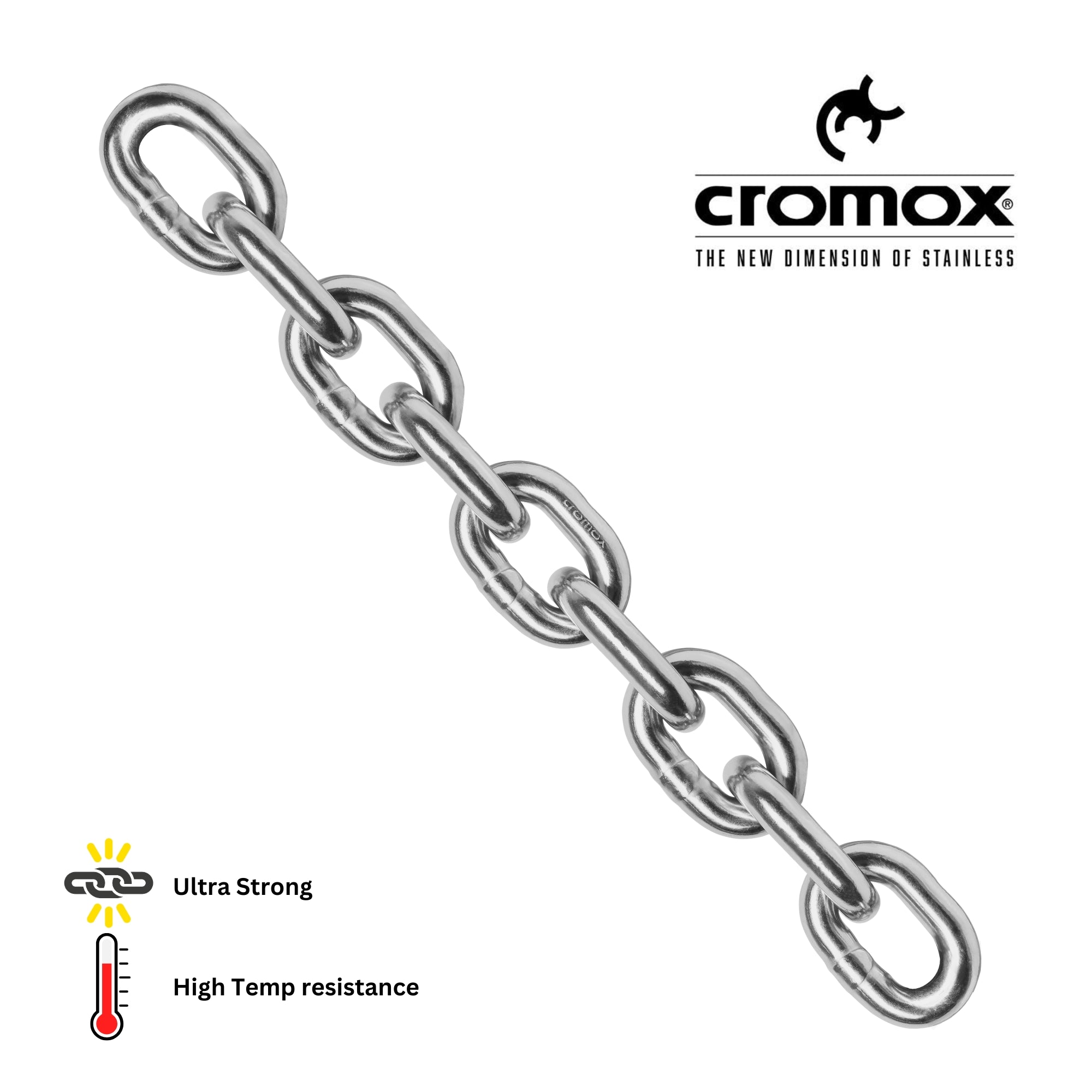
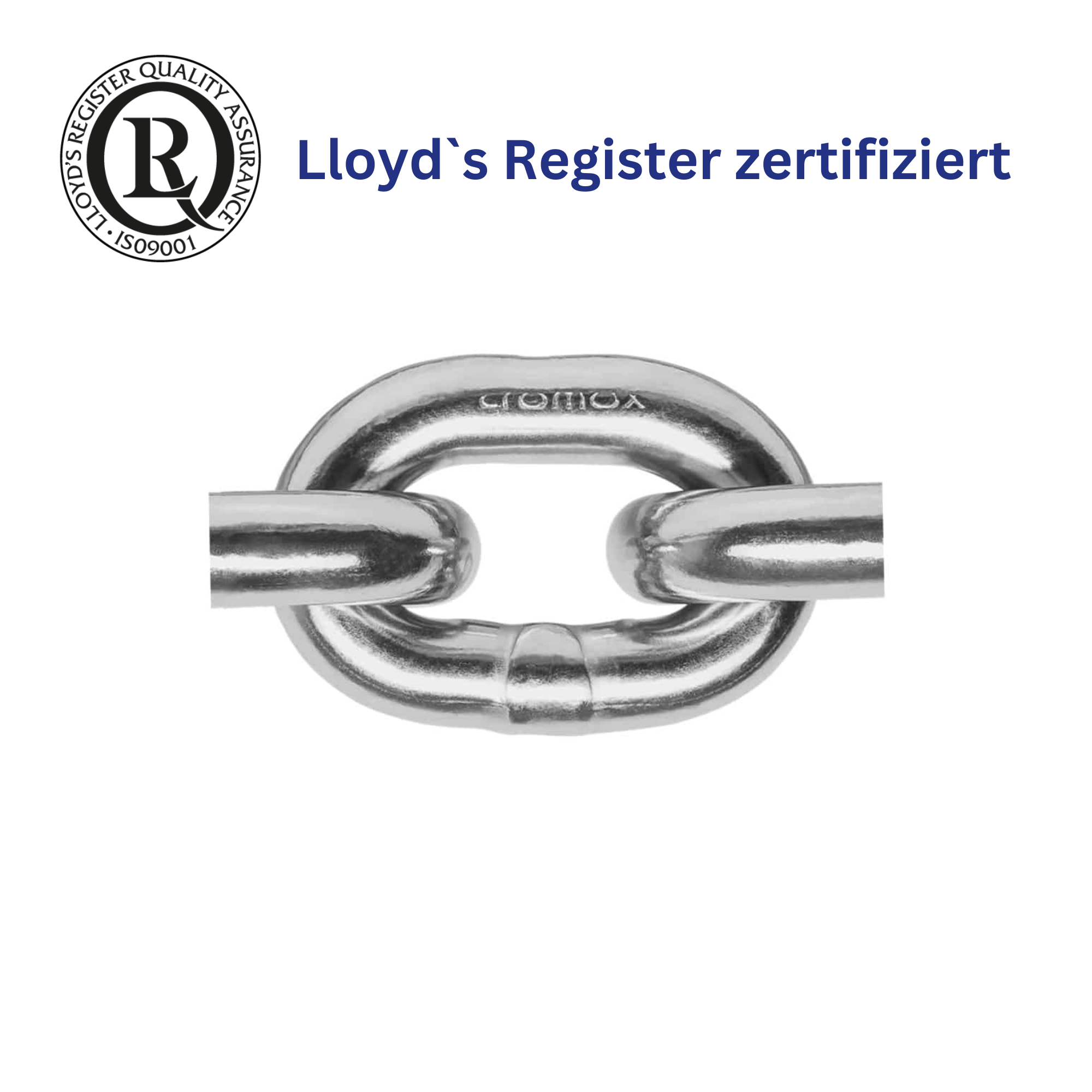
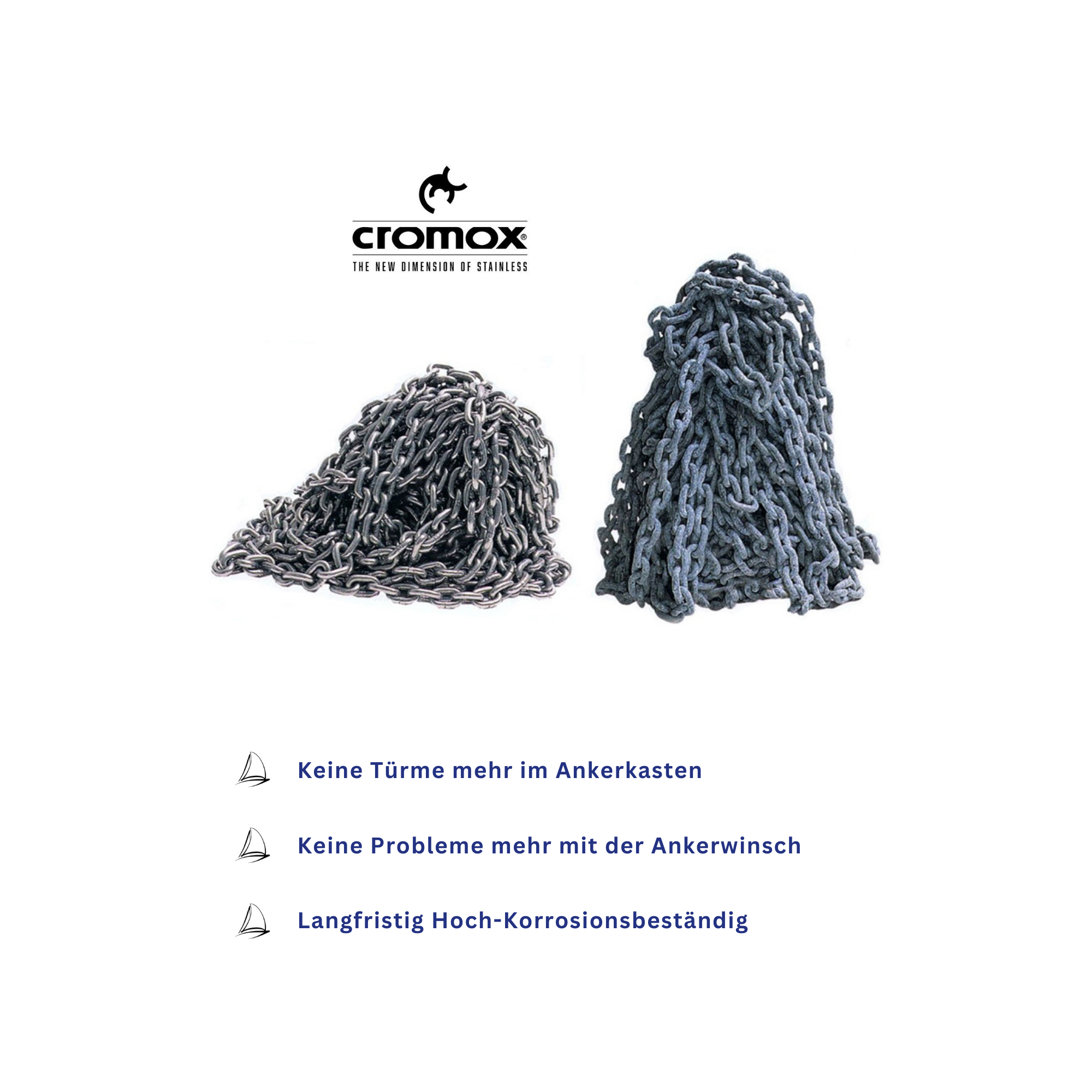
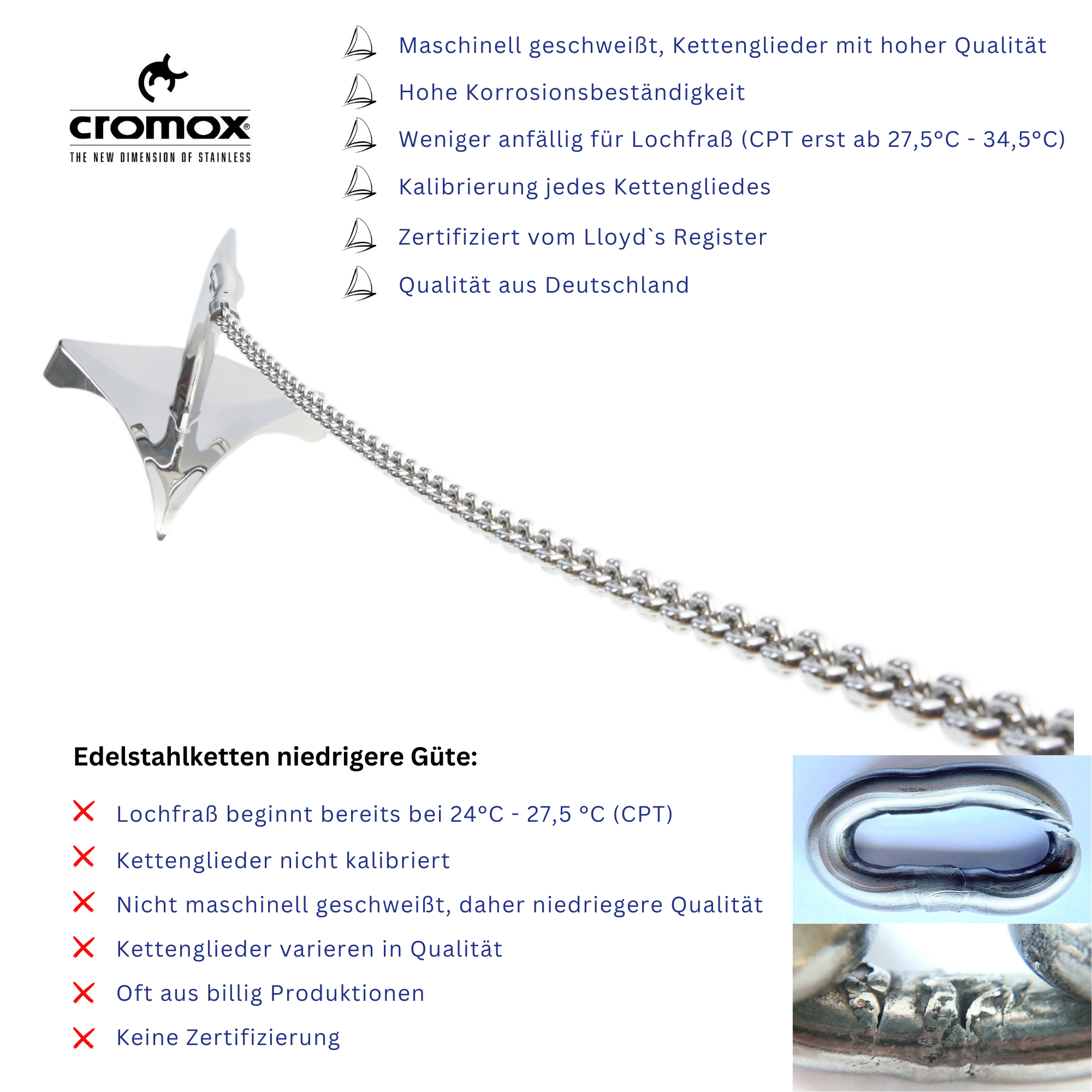
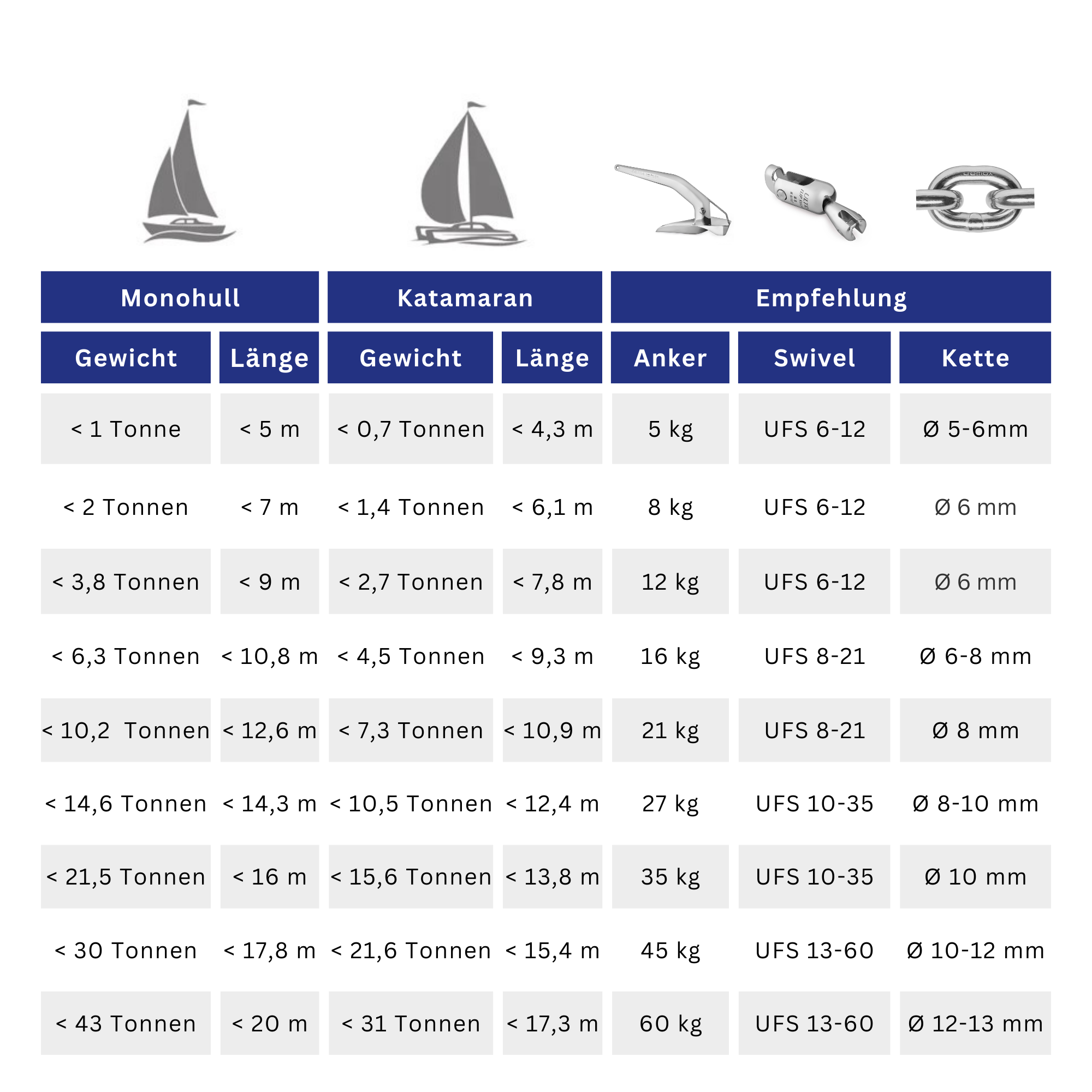
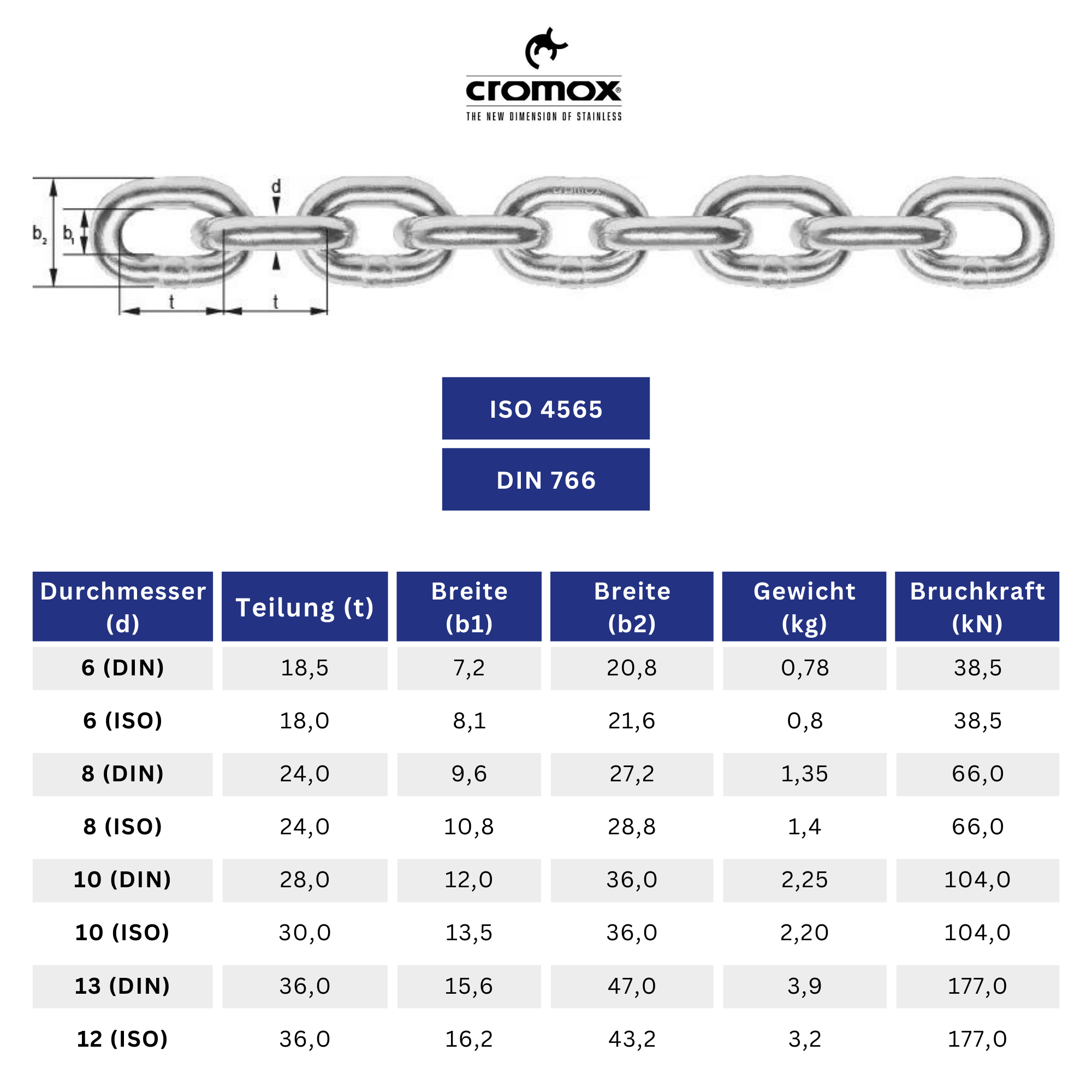
Cromox - DUPLEX stainless steel anchor chain | GRADE 60 PLUS
For high-seas adventures on long voyages, only the best will do. Whether the Mediterranean or the Caribbean – rely on the Cromox® DUPLEX stainless steel anchor chain. Made from high-quality AISI 318LN DUPLEX stainless steel, it offers outstanding corrosion resistance and heat tolerance in warm, salty waters. As the only one of its kind with Lloyd's Register certification, it combines the highest safety and quality from German manufacturing. Whether long voyages or frequent anchoring – with this premium chain, your anchor will never lose its firm grip. The perfect foundation for carefree days on the high seas.
What can the DUPLEX stainless steel anchor chain do?
- High-quality AISI 318LN DUPLEX stainless steel
- Corrosion-resistant, excellent in saline and warm waters.
Tax included. Shipping calculated at checkout
- AISI 318 LN DUPLEX stainless steel
- Lloyd's Register certified
- Made in Germany
Name: Ketten Wälder
Website: Manufacturer's website
Email: info@ketten-waelder.de
Link: Manufacturer's article
Choose options






Tax included. Shipping calculated at checkout
